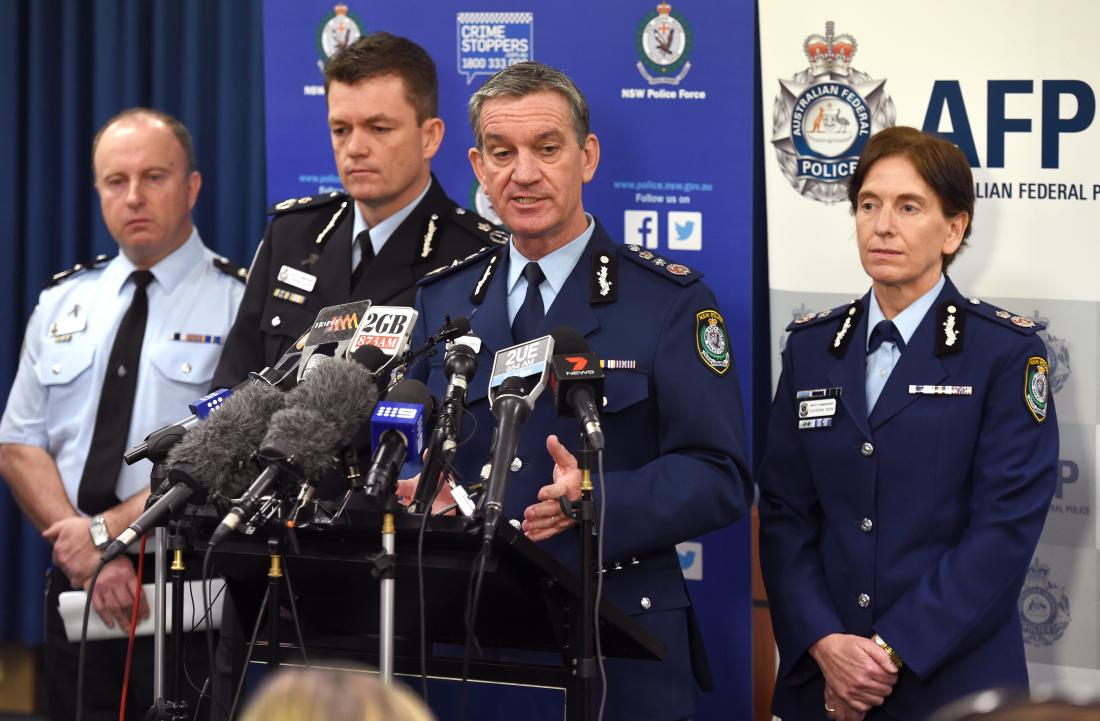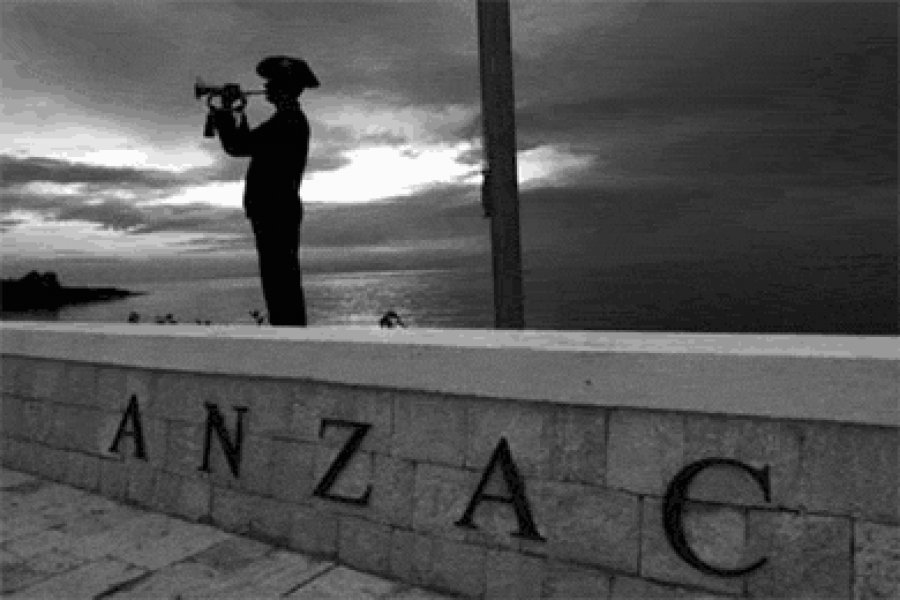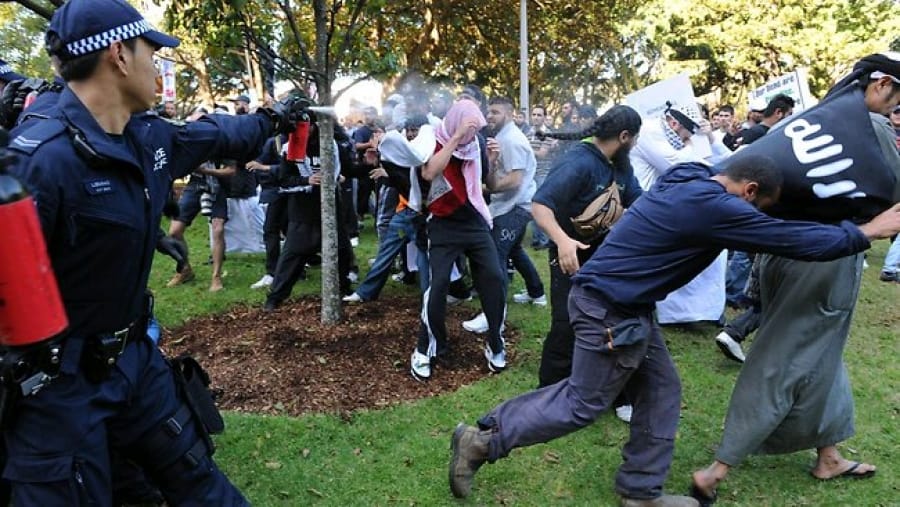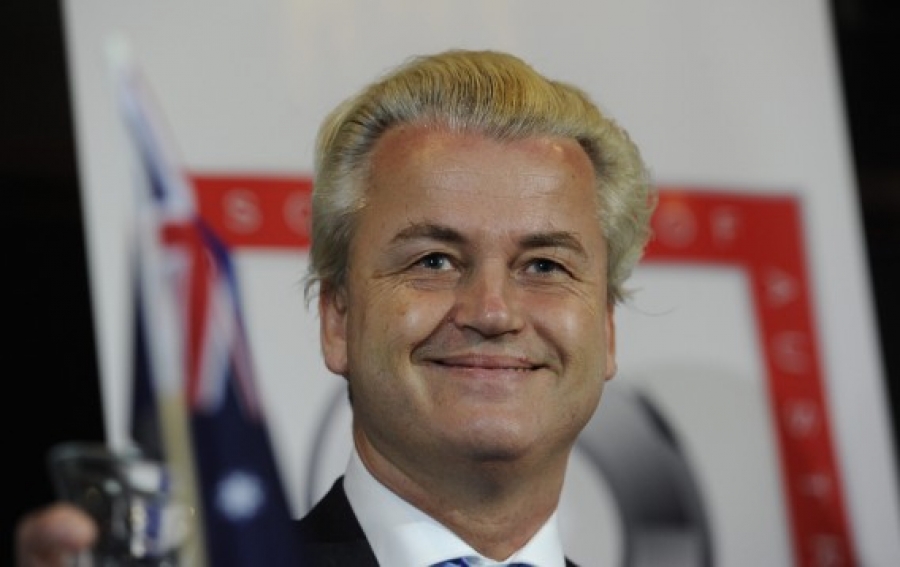The politics of condemnation is alive and well in Australian politics and media. In the wake of the Parramatta shooting, the old trope has been mobilised once more, interrogating Muslims and demanding their acquiescence to the government narrative on ‘terrorism’ and ‘radicalisation’. The problem of violence, they must accept, is ‘extremism’ within their own community.
This tired narrative, however, only deflects attention and responsibility from the real culprits.
Anthony Klan argues that some Muslims sought to capitalise on the Parramatta shooting, charging them with the crime of “failing to condemn” it. Using Hizb ut-Tahrir to prosecute his case, he regurgitates the caricature of the duplicitous, conniving Muslim who presents an existential threat to all that is good and worthy – the Muslim bogeyman.
The various falsities about Hizb ut-Tahrir mentioned by Klan are hardly worthy of a response. Indeed, they are beyond the point. Hizb ut-Tahrir, in this instance, represents the Muslim bogeyman. Everyone in the Muslim community gets a turn to be the representation of the bogeyman in a broken discourse that speaks about Muslims, not to them.
When Muslims and Islam are mentioned, it is not to introduce balance or nuance. It is but to drag them into a prevailing conversation to reinforce a prevailing narrative, even if the reality is the precise opposite. This is the case with Hizb ut-Tahrir and this is case with every other Muslim community organisation.
Some play the ‘good Muslim’, others the ‘bad’, but invariably their role is to remain within the co-ordinates set for them and to reinforce the very premises upon which intervention in their communities, locally and abroad, is justified.
When these co-ordinates are transgressed and these premises challenged – as Wassim Doureihi did in his Lateline interview with Emma Alberci last year – it is to the palpable chagrin of those who stand guard to the status quo.
Let us be clear with regards the prevalent disingenuous politics of condemnation.
The problem is not with Muslims who “fail to condemn”. The problem is with the demand for Muslims to condemn acts for which they are neither responsible directly nor culpable insofar as creating the social and political conditions that give rise to them.
Indeed, the demand for Muslim leaders and groups to condemn is but to entrench the notion that the problem lies with Islam and Muslims as the locus of responsibility.
Rather, the primary cause of violence by individuals against western interests is western foreign policy. Everyone knows this, notwithstanding contrary allusions. Yet foreign policy still does not feature anywhere in Australian or western ‘counter-terrorism’, the strongest proof of its pretentious nature.
Where Australia’s execution of unjust foreign policy should cease, the government narrative instead shifts blame to Islam and Muslims, in turn justifying all sorts of insidious intervention in the Muslim community.
The fact is that armed attacks on civilians or police are not an uncommon phenomenon in Australia. The usual response is for them to be treated as criminal cases by the relevant state or local authorities, without much unnecessary ado.
Unless the perpetrator is a Muslim.
In such a case, the response is altogether different. It now becomes a matter for the highest political and security authorities. The Prime Minister, Opposition Leader, Premier all have to provide a running commentary. The State Police Commissioner and AFP Commissioner must be involved. The media coverage is front page, wall-to-wall for days on end. The attack must inevitably be linked to ‘terrorism’, within mere hours of the incident, even when no facts or details have been established.
This is what took place following the killing of police staffer Curtis Cheng in Parramatta last month.
It must be emphasised here that the political response – judging the attack as ‘terrorism’, demanding Muslim leaders and parents take responsibility, holding emergency meetings with Muslim leaders, flagging further ‘de-readicalisation’ programs – was formulated without any established proofs for the claims made and prior even to the initiation of any official investigation, let alone the conclusion of one.
Who, then, sought to capitalise on the shooting?
The above-mentioned response to the shooting was exceptional based not on the objective facts of the case but the identity of the perpetrator.
Consider that in the last fifteen months, there have been at least a dozen other such brazen attacks on civilians or police in the last year that received a very different response.
Consider that even when the attack is ideologically or politically motivated – such as the case of Rodney Clavell – or seeks to kill multiple people unknown to the attacker – such as the case of Daniel Fing – the incident is not deemed ‘terrorism’, if the perpetrator is not Muslim.
This is because in the post 9/11 world, the issue easiest for politicians to exploit is ‘national security’. The matter simplest to invoke fear through and mould public opinion around is the ‘war on terror’ – ‘counter violent-extremism’ being the latest Orwellian title. And because this war, at its core, is a war against Islam, it is only attacks by Muslims that can genuinely be used to invoke it and bear its fruit.
More money and powers for intelligence agencies, police, and the military. More draconian laws by which authorities can further intrude into the lives of people. More fodder for media to sensationalise, achieve higher ratings and profits. And more interference in and micro-management of the ‘problem community’ of the day: Muslims. These are the fruits of this war, which, by any standard, has made the world less, not more, safe.
These strategies yield good dividends for politicians, security agencies and media, because benefiting from the misery of masses is what their jobs have become in an increasingly narcissistic and selfish world.
If this were not the case, these institutions would use their power and influence to deal with more pressing issues like domestic violence and drug abuse, which injure and kill more people and destroy more lives in weeks than ‘Islamist terrorism’ has in decades.
It is the establishment, then, and mainstream media which shamelessly milk attacks like the Parramatta shooting, creating political and social hysteria to justify foreign and domestic interventions that only further besiege an entire community, feed the anger of its youth, and perpetuate the cycle of violence.
Uthman Badar is the media representative of Hizb ut-Tahrir in Australia.
[This piece was published in The Australian on 21 Oct 2015 under the title, Finger points at Islam every time]
![]()















